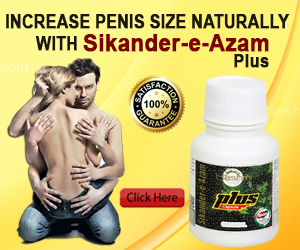
If you struggle to achieve or maintain an erection, you’re not alone. More than 3 million people in the United States experience erectile dysfunction (ED) every year. The good news? It’s easily treatable and often curable. Standard treatments include injections, vacuum pumps, surgery, implants, and prescription drugs—like Viagra (sildenafil), Levitra (vardenafil), and Cialis (tadalafil).
But erectile dysfunction is often self-diagnosed, with no need for expensive lab tests or an awkward conversation about sexual problems with your doctor. So, many individuals prefer to start by trying the range of natural treatment options that people with ED report as fast and effective. Such as:
- Counseling
- Acupuncture
- Vitamins, dietary supplements, and herbal remedies
- Food and diet changes
- Lifestyle changes
- Exercise
The best treatment for erectile dysfunction depends on what’s causing it. Some common culprits behind erectile dysfunction, sometimes called impotence, include:
- Diabetes
- Heart conditions and cardiovascular disease
- Lifestyle factors, such as smoking, excessive alcohol consumption, and lack of exercise
- Stress and anxiety
- Depression
- Excess weight
- Low testosterone
- Stroke
- Penis injury
- Medication side effects
Because of the variety of contributing factors to erectile dysfunction, there are many ways to treat your symptoms. Depending on your specific health condition and medical history, different treatments may work for you. You should always discuss the risks and benefits of any new treatment regimen with a trusted medical professional.
1. Sexual or couples therapy (Counseling)
If stress, anxiety, worry or depression are contributing to your symptoms, therapy with a trained counselor or therapist can help to enhance sexual desire and improve performance. With professional guidance, you can learn tools to manage your stress, whether it’s regarding your sex life, finances, work, relationships, or anything else.
2. Acupuncture
Acupuncture is an ancient Chinese medicine technique that involves painlessly inserting very thin, metal needles at specific points in the body in order to release tension and stimulate energy flow, or qi (chi), through the body.
There are multiple scientific trials showing preliminary evidence that, when performed by a skilled practitioner, acupuncture is a safe and useful treatment for many different disorders, including potentially erectile dysfunction. A 1999 study published in the International Journal of Impotence Research found that acupuncture improved the quality of erections and restored sexual activity in 39% of participants. This is supported by a 2003 clinical study that 21% of patients struggling with erectile dysfunction reported improvements in their erections after a course of acupuncture treatments.
It’s widely agreed that the risks associated with acupuncture are low. Further research is needed to confirm its effects, but there’s not much danger in trying it.
3. Vitamins and Supplements
Vitamins and supplements have been used in other cultures as a treatment for erectile dysfunction for many years. But that doesn’t mean their benefits are always well-studied—or even safe. Watch out for phony treatments or potentially dangerous supplements.
Arginine
L-arginine is a naturally present amino acid which helps to increase the body’s production of nitric oxide. This nitric oxide helps blood vessels dilate, which in turn increases blood flow to the penis, thereby facilitating erections.
Research indicates that 31% of men who had both a lower production of nitric oxide and experienced erectile dysfunction saw improvement in sexual performance when taking an oral supplement of L-arginine.
In another 2003 study, 80% of participants saw restored sexual ability after just two months when L-arginine was combined with pycnogenol, another natural supplement.
DHEA (Dehydroepiandrosterone)
Testosterone is an essential hormone for normal sexual function and libido (sex drive); some cases of erectile dysfunction are attributed to low testosterone levels. DHEA (Dehydroepiandrosterone) is an over-the-counter hormone supplement that the body converts into both estrogen and testosterone. Increasing testosterone can potentially help alleviate erectile dysfunction symptoms.
DHEA is a natural hormone that is produced by your adrenal glands, and it’s been shown that men with low levels of DHEA were more likely to be impotent. In one 2009 study, participants who received DHEA were more likely to achieve and maintain an erection than those on placebo.
Although these results are promising, researchers agree that more studies with larger data numbers are needed to further investigate the extent of DHEA benefits in relation to erectile dysfunction.
Ginseng
Known as the “Herbal Viagra,” Ginseng has been used for centuries to treat impotence and male sexual function. As with many herbal supplements, researchers agree that more studies with larger sample sizes must be conducted for conclusive evidence. However, current research in panax ginseng (red ginseng) is promising.
Yohimbe
Extracted from the bark of the African yohimbe tree, yohimbe was sometimes recommended by doctors to patients suffering from erectile dysfunction before current prescription medications, such as Viagra, were available.
You should always speak with a doctor before taking any new supplements, as some—such as yohimbe—are known to cause jitteriness and headaches, and could interact with other medications you’re taking.
Although some small studies show yohimbe to have positive effects on erection issues, it’s not widely recommended by medical professionals to treat erectile dysfunction.
Horny Goat Weed
Horny goat weed (Epimedium) is an herb used for years to treat sexual dysfunction. Some research indicates that main component, icariin, acts similarly to common erectile dysfunction prescription medications like sildenafil (Viagra). It works by allowing blood to fill the arteries of the penis, thereby facilitating erections. Horny goat weed is available over-the-counter as a tea, capsule, powder, and tablet.
Other herbal treatments and supplements that are sometimes noted to improve erectile function include ginkgo biloba, rhodiola rosea, maca, and ashwagandha. However, like many alternative therapies, there is little research to support their claims.
You should always speak with your doctor before taking over-the-counter, natural remedies, as there is the risk of interaction with other medications and other side effects.
4. Food and Diet
Vascular health, circulation, and excess weight are often significant contributors to impotence. If you are overweight, losing weight can greatly help erectile dysfunction It’s no surprise then, that many people first make changes to their diet as a means to alleviate the symptoms of erectile dysfunction and achieve consistent erections.
But what foods help erectile dysfunction? Try adding more of these items to your diet.
Pomegranate Juice
Chronic conditions such as heart disease and high blood pressure often contribute to erectile dysfunction. There is no solid evidence that pomegranate juice will alleviate impotence. However, some studies show that drinking the antioxidant-rich juice could reduce the risk of these underlying causes, including heart disease and high blood pressure. It’s not uncommon for doctors to recommend patients drink pomegranate juice—it could help with erectile dysfunction. But even if it doesn’t, it may come with other health benefits.
Dark Chocolate
Poor blood flow and circulation to the penis can contribute to erectile dysfunction. One way to increase both is to consume antioxidants called flavonoids, like those found in dark chocolate. These flavonoids may also help lower blood pressure and decrease cholesterol, two factors known to contribute to male impotence. Important to note, you should avoid milk chocolate because of the sugar and absence of beneficial flavonoids.
Pistachios
A 2011 study tracked the effects of pistachios on patients suffering from erectile dysfunction and found that those who consumed a nut-heavy diet for several weeks saw a significant improvement in their sexual health. Researchers believe the benefits of pistachios for erection problems may be due to an amino acid called arginine, which is known to relax blood vessels, resulting in increased circulation to the penis. They are delicious and healthy, though avoid the salted variety.
Oysters and Shellfish
Common lore says that oysters are a natural aphrodisiac. One of the reasons they attained this reputation could be their high levels of zinc. Also found in shellfish, zinc plays a significant role in the production of the male hormone testosterone, which is essential to sexual health.
Watermelon
Watermelon is full of phytonutrients (including lycopene), which are known to relax the blood vessels involved in erections. There are multiple studies that support the connection between watermelon and improved sexual function, including research from Texas A&M University, suggesting it could be an alternative to doctor-prescribed Viagra.
Leafy greens and beets
Spinach, celery, and beets may help alleviate symptoms of erectile dysfunction by increasing circulation, thanks to their high concentration of nitrates and antioxidants. Beet juice in particular is known to be especially high in nitrates. Nitrates can help open the blood vessels that supply the penis. Believe it or not, today’s erectile dysfunction drugs—such as sildenafil, Cialis, or Staxyn—are based on nitrates’ vasodilating effects.
Tomatoes and pink grapefruit
Tomatoes and pink grapefruit are full of the phytonutrient, Lycopene, which is great for circulation (read: getting the blood flowing to your penis). There are some indications that Lycopene is best absorbed when consumed with oily foods so for best results, try adding these to a salad with some olive oil and avocado.
Caffeine
Circulation plays a huge role in achieving and maintaining erections. With that in mind, you may want to stick to your morning cup of joe. That’s because there are indications that caffeine increases circulation. According to one study, people who drink the equivalent of two to three cups of coffee per day had reduced likelihood of having erectile dysfunction when compared to other participants.
Eggs
According to a clinical study in The International Society for Sexual Medicine, a lack of vitamin D can raise your risk of erectile dysfunction. Why? Without enough vitamin D, you may not produce the amount of nitric oxide that your blood vessels need for optimal function. Sunshine is a solution for a vitamin D deficiency, but that’s not always possible in seasons with limited daylight hours, like winter. Fortunately, patients can boost their vitamin D intake through foods such as eggs, fortified milk, and cheese. When eating eggs, don’t forget the yolk. The old thought process from the 1980s of egg yolks being bad for you has been dropped.
Apple Cider Vinegar
There are no studies that directly examine the effects of apple cider vinegar on erectile dysfunction. But there is evidence that it can reduce the impact of some conditions that cause erectile dysfunction, including obesity, high cholesterol, and heart disease. For best results, mix no more than two tablespoons of apple cider vinegar in a glass of water and drink prior to eating once a day. Be aware, however, that it has a reputation for worsening esophageal reflux.
There are many foods that can benefit your vascular health, and therefore, help you avoid many of the common causes of erectile dysfunction. Some other foods you can include in your diet to alleviate symptoms of impotence include cranberries, apples, peanuts, onions, tea, and red wine.
There are also many foods that increase risk for impotence. Refer to this list of foods to avoid to minimize the impact of erectile dysfunction in your life.
Sugar
There are multiple reasons you should consider avoiding sugar as a means of treating and preventing erectile dysfunction. First, excess weight is a key contributor to erectile dysfunction, and reducing the amount of sugar in your diet is a great step in maintaining a slimmer waistline. Secondly, research and clinical trials show sugar consumption can lower your testosterone levels by 25% for up to two hours. Low testosterone makes it much harder to achieve and maintain an erection. And thirdly, there’s the common sugar crash—when you energy levels plummet after the sugar high. If you need to eat something sweet, try sticking to natural sugars like those in fruit and honey.
Artificial sweeteners and diet soda
The medical community is realizing a link between artificial sweeteners and obesity and diabetes. Obesity and diabetes are strongly linked to erection problems. Her are a few links for more specifics, diet soda study and diabetes study.
Unhealthy fats
Like sugar, a diet high in saturated, unhealthy fats can exacerbate erectile dysfunction by clogging up arteries and lowering testosterone in the body.
5. Lifestyle changes
Below are a list of lifestyle changes you can make that are often encouraged to treat erectile dysfunction.
- Stop smoking
- Reduce alcohol consumption
- Exercise more, including Kegel exercises
- Get better sleep
- Meditate
Smoking narrows blood vessels and decreases circulation—in addition to its links with lung cancer and other health problems. Alcohol is a central nervous system depressant, which can make it harder to achieve arousal.
Increasing exercise has the opposite effect. It can increase testosterone and improve blood flow by several mechanisms, including naturally increasing nitric oxide. Getting enough quality sleep triggers the release of testosterone and other hormones that improve sexual function. Enough sleep also speeds up your metabolism making it easier to achieve and maintain a healthy weight, see this link to a study in the The International Journal of Obesity.
Any technique that reduces stress may help ease the symptoms of erectile dysfunction, so give it a go. These changes are part of a healthy lifestyle regardless.
What’s the most effective treatment for erectile dysfunction?
It depends. Reach out to your healthcare provider before trying any new treatment options, and if your condition doesn’t improve using natural cures. Remember, the U.S. Food and Drug Administration (FDA) doesn’t regulate natural treatments such as herbs and supplements. Always buy from a trusted and reputable source, and be mindful of potential risks and side effects.
There are many popular prescription medications that are proven effective to alleviate your symptoms and get you back to peak sexual health. For example, you could ask your doctor about Cialis, Levitra, Stendra, Staxyn, Viagra, or a generic sildenafil tablet. Your primary physician is usually the first doctor you’ll see for a men’s health evaluation. However, they may refer you to a specialist in urology or endocrinology.
Whether you decide to go straight to a prescription medication, or try some natural remedies, remember that erectile dysfunction is a common condition that’s very treatable. With some trial and error, you’re likely to find an ED treatment that works for you.

 Healthy habits help people sidestep clogged leg arteries
Healthy habits help people sidestep clogged leg arteries



